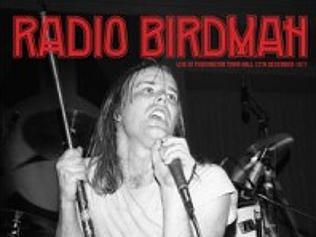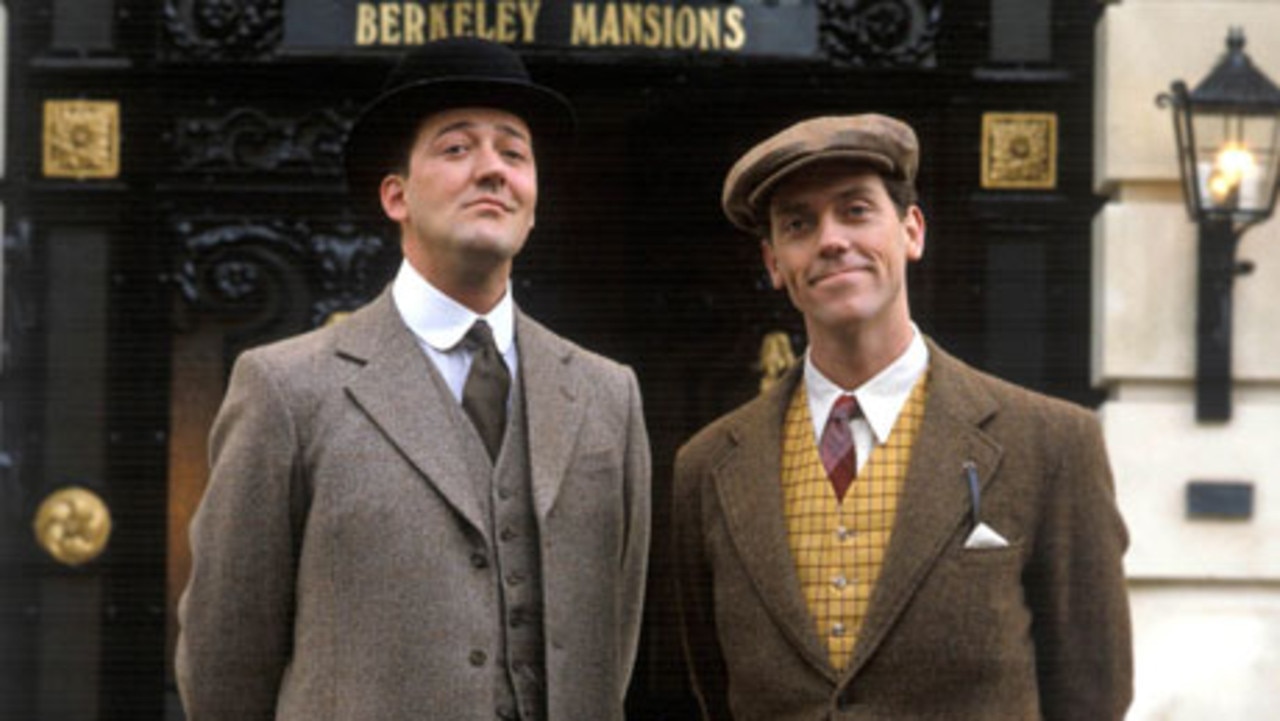Reviews: Radio Birdman; We Two Thieves; Steve Barry; Mike Steva ...
A NEW box set celebrates the high-energy rock of a seminal Australian band.

A NEW box set celebrates the high-energy rock of a seminal Australian band.
ROCK
Radio Birdman Box Set
Radio Birdman
Citadel Records
4.5 stars
LISTEN to the newly released Radio Birdman double live album and it quickly confirms that this was a band with two settings: full bore and overdrive.
That was the promise of influential album Radios Appear when it was released in 1977 and it’s driven home in remastered glory by the raw energy of this sweat-fuelled set at Sydney’s Paddington Town Hall in December of that year.
The band batters the audience with wave after wave of sizzling, high-energy rock with an intensity that continues to resonate almost four decades later.
Formed in late 1974 by US-born guitarist Deniz Tek and frontman Rob Younger, Radio Birdman was influenced by the hard-hitting sound of Michigan bands such as the Stooges and MC5 as well as by early Blue Oyster Cult, whose song Dominance and Submission was the source of the first album’s title (BOC’s Transmaniacon MC is also one of three songs on the live album not penned by band members).
It was not a small band with the classic line-up also featuring the talents of drummer Ron Keeley, bassist Warwick Gilbert, guitarist Chris Masuak and keyboardist Pip Hoyle. While their frenetic style proved a big influence on the punk movement in Australia, it was a label they correctly did not apply to themselves.
The words “slow ballad” may not have been in Radio Birdman’s lexicon — Man in the Golden Helmet is arguably the closest it got — but neither was it one-dimensional.
Radio Birdman’s inimitable brand of primal rock, with its ripping guitar solos and driving rhythms, was edgy and articulate rather than brutally blunt. And, of course, it was never dull. The 19 offerings of this concert were recorded before the band’s departure to Britain and include tracks from Radios Appear and the second studio album, Living Eyes, which would be recorded in Wales the following year.
The concert is an unexpected gem in a limited-edition box set that also contains both versions of Radios Appear (the original issue, which kicked off with the Stooges’ TV Eye, and the overseas version, which starts with What Gives?) and an avalanche of fascinating bonus stuff such as the original 1976 EP as well as outtakes and alternate versions.
All have been remastered from original tapes and the quality is generally excellent, with the exception of a few very early video clips on the bonus DVD.
There is good news, too, for those who prefer their records in the format of the day. The studio albums and the live set are all due to be released on 140g audiophile quality vinyl in the lead-up to Christmas.
Either way, the result is a great time capsule and a window on a band whose career ended far too abruptly and well before its full potential was realised.
Steve Creedy
ROOTS
At Midnight We Ride
We Two Thieves
MGM
3 stars
AMERICANA is flavour du jour in Australia, with seemingly every man and his dog — or, in this case, women and their canines — getting in on the act. The latest Down Under act to embrace the popular back-porch folk music style brings together Danielle Caruana and Emily Lubitz, who are best known for their frontline roles in the bands Mama Kin and Tinpan Orange. Their debut album as a duo is a down-home number in the literal sense, At Midnight We Ride having been written and rehearsed around a kitchen table in the former’s Fremantle home — well scrubbed, she insists — and recorded a few months later in another house, around a small cluster of microphones. The result is a pleasant, if not exactly groundbreaking, release that’s elevated by the excellence of the singing more than the quality of the songs.
Their vocals sound especially sweet in an a cappella intro to the joint composition Peach Tree and in Glory Down, a gospel harmony study earthed by the voice (and whistling) of the song’s author, Harry James Angus. A banjo-ukulele (banjolele) picked by the Cat Empire’s frontman is the backdrop to an interesting set starter, Only For You. Dave Mann’s guitar work embellishes a country and western-flavoured harmony piece, Too Old to Die Young, and provides embroidery elsewhere on a shortish session of singalong songs. Another Caruana & Lubitz co-write, Ned Kelly, paints a portrait of Australia’s most notorious bushranger from a feminine perspective and, gratifyingly, in an Aussie rather than American drawl.
Tony Hillier
JAZZ
Puzzles
Steve Barry
Independent
4 stars
Since his arrival in Sydney in 2009, ex-Kiwi pianist-composer Steve Barry has been gathering awards and widespread plaudits, playing with numerous top-flight ensembles. This album follows his self-titled debut CD released in 2012 and features the same trio line-up and the same guest saxophonist, Dave Jackson, on three of the 10 tracks, all Barry originals. The established trio includes bassist Alex Boneham and Tim Firth on drums.
It’s a diverse collection ranging from the ballad-style introspection of Kanji to faster post-bop themes such as Flux, where Jackson’s alto ducks and dives and the piano builds cascades, flourishes and runs while bass and drums expertly maintain the energetic thrust. Another number featuring Jackson’s alto, Cosmic Love Child, begins with just piano and saxophone in quick-moving counterpoint, flowing towards the two joining in unison to state the closing theme. There’s an out-of-tempo opening to Epiphany where piano and bass interact effectively with lingering cymbals in a pastoral theme, which, while the bass continues its ostinato, is ornamented and explored as drums pick up the slow rhythm and acoustic bass drifts into an inspirational mode.
Of the two short pieces, Harbinger presents solo piano using big chords in a prefacing style, and Idyll, more introspective, keeps the piano’s chords progressing as drums embark on a busily building accompaniment. Barry’s new works use improvisation and melodic composition in equal measure, performed by his empathetic partners to produce unpredictable but thoroughly enjoyable results. His keyboard technique allows the seemingly effortless execution of a multitude of original and inexhaustible ideas.
John McBeath
WORLD
Who Am I
Mike Steva
Yoruba Records
4 stars
Melbourne house producer Mike Steva’s debut LP reflects a maturity and richness in production that makes it perfect fare for the worldly Yoruba imprint. Blending influences from Steva’s Macedonian background with adventurous instrumentation, tribal rhythms, soulful vocals and intermittent moodiness, Who Am I’s convenient summation as a house record disregards Steva’s talent for striking such a nice balance between warm vocal tunes and darker, more driving grooves. Who Am I is also peppered with contributions from several Melbourne musicians and artists, starting with the title-track opener, which brings together the spoken-word vocal of poet Bianca Maya Foulton with off-kilter drums, squelchy synths and an unnerving background effect. Moment in Time is a brilliantly mellow, lounge-like offering elevated through the pipes of Berlin-based singer George Levin. The tight ReSolution featuring Yoruba head Osunlade evokes memories of classics from Soul Heaven and Vega Records. Sunce, translated to “sunshine”, brings the happy vibes in what is an instrumental track underpinned by punchy horns, while Oasis demonstrates the variety of instrumentation featured throughout the album, as drums, percussion, keys, Rhodes and marimba combine to create a deep rhythmical journey. Weekend Love is the album’s feel-good standard, permeated by an unobtrusive beat that promotes the soulful back-and-forth between Melbourne vocalists Motty & Siobhan. Steva’s steady rhythms and mix of vibes make Who Am I an idiosyncratic offering, and one easy to sink into.
Tim McNamara
ELECTRONICA
The Worry
Seekae
Future Classic
3.5 stars
The final song on this Sydney trio’s second album, 2011’s +Dome , hinted at a forthcoming artistic progression, as it contained something that had previously been shunned: the human voice. Seekae had established itself as a reliable purveyor of interesting electronica, coloured by cut-up samples, synthesisers and pulsating beats. Still, the chasm between +Dome and The Worry is surprisingly wide, as percussionist Alex Cameron’s vocals are now central in the mix. It’s a bold move and one that risks alienating the group’s fanbase. There are echoes of another Sydney electronic group in this decision: PVT added vocals to its 2010 release Church With No Magic, and it didn’t add to the quality of the songs. If anything, it detracted from their appeal.
This was my initial response to The Worry: for the first 10 spins, I couldn’t get past the fact Seekae had seemingly reduced its originality by joining the masses of vocal-led acts. Ultimately, through sheer repetition, I’ve come to enjoy and appreciate the new direction. Other fans may not be as patient.
Cameron’s voice truly impresses only on a couple of tracks, most notably on sweet centrepiece Further, where he’s accompanied by horn blasts. The high-BPM programming on Oxen Calm is the album’s energetic apex, and it would have been nice to hear more compositions of this style and calibre. The Worry captures a band seemingly in the midst of an identity crisis, though thankfully its songwriting abilities remain intact.
Andrew McMillen
ROOTS
Green Side Up
Steve Tyson
Red Music/MGM
4 stars
IN Green Side Up, veteran stringed instrument whiz Steve Tyson’s follow-up to an auspicious if belated debut album as solo singer-songwriter, family history again proves a rich source of inspiration. Indeed, tales connected to a doughty great-grandmother, one Ellen Lematey, bookend a well-sequenced CD that covers a range of roots music genres.
The album’s fascinating curtain-closer, St Bartholomew’s Day, is set in late-century Paris, from which Lematey’s forebears, who were Huguenots (16th-century French Calvinist Protestants), were forced to flee to Ireland after a killing spree by the ruling Catholics.
Several centuries later, the Lemateys found their way to north Queensland, from where the album opens to an early 1900s backstory of the eponymous Ellen battling valiantly to provide for her family. In both epics, Tyson’s smoky singing and skilful guitar and mandolin playing receive sterling support from three of his bandmates from Rough Red.
In another cornerstone song, Armistice Day — a ripping yarn centred on a great-uncle who was captured by advancing Germans on the Western Front during World War I, only to execute a great escape — Tyson’s six-string banjo combines with Steve Cook’s fiddle.
A contemporary song, Back to the Bar, a duet that captures the spirit of the Pogues’ Fairytale of New York, features co-writer, singer and flautist Sarah Calderwood in the Kirsty MacColl role. When Heroes Turn Villains mentions the night Tyson shared his Gibson SG electric guitar with rock ‘n’ roll legend Chuck Berry. Other musical heroes of his are perhaps echoed in the Van Morrison-like swing of In the Middle and the Beatle-esque lilt of Emerald Eyes.
Tony Hillier
INDIE/POP
Echoes in the Aviary
Jane Tyrrell
Elefant Traks
4 stars
Jane Tyrrell is a consummate storyteller in song, so it’s interesting to hear how what became a tribute to Nobel Peace Prize joint laureate Malala Yousafzai made it on to Tyrrell’s debut solo album, Echoes in the Aviary. She says she awoke one morning a few years ago with just the melody in her head, couldn’t shake it and recorded it as a vocals-only fragment. “I sat in my study looping it, playing around with vocal harmonies and counter-rhythms,” she explains.
The initial scrap felt like the kinds of taunt children might sing at each other, but by the time she had developed it and added percussion it had “taken on a mood more purposeful than taunting” — and brought to Tyrrell’s mind the then-current story of the 15-year-old Pakistani girl shot in the head by the Taliban for insisting on girls’ rights to schooling. What was tentative and wordless had become real, a narrative called The First Stand: “I won’t be known, I won’t be known as my father’s daughter / he will be known, he will be known as my father … now who’s running? I’m not running,” she sings.
Echoes in the Aviary is a soaring, complex
and nuanced album, with early singles Wild Waters and The Rush strong highlights and the glorious build of Among the Bells, towards the collection’s end, a standout whose strength she attributes to producer J. Walker, he of Machine Translations fame. Other collaborations with Laurence and Richard Pike (PVT), Dustin McLean (Axolotl) and Pip Norman (Sparkadia) are equally successful. Different to her hip-hop work with Elefant Traks stablemates the Herd and Horrorshow, Aviary cements Tyrrell’s importance in Australian music.
Stephen Fitzpatrick


